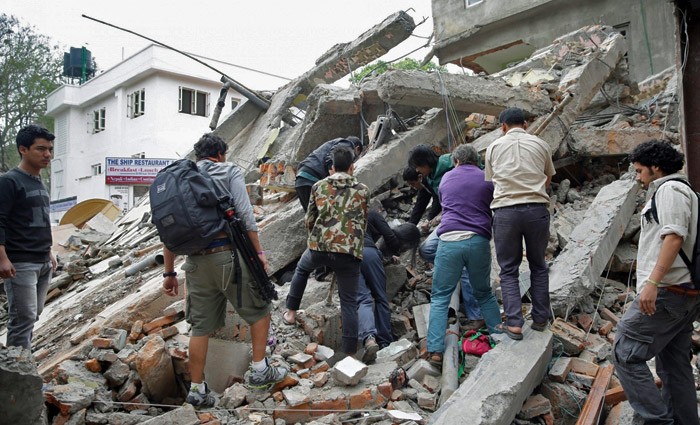
Nepal (MNN) — Relief, rehabilitation, and rebuilding are the three Rs of Nepal’s national curriculum, post-earthquake.
All three are in short supply. Also adding to the confusion: more quakes. Four days after Nepal was shaken by its second deadly significant earthquake in less than three weeks, nerves were rattled there by another quake Saturday afternoon.
As aftershocks go, this one registered 5.7 magnitude on Saturday. Seismologists say there have been well over 100 quakes registering at a magnitude of 4 or over since April. The result of the May 16 quake included no reports of injuries or deaths, possibly because so many structures were already toppled by the 7.8 April 25th temblor and the 7.3 that followed on May 12.
With the excitement of disaster dying down, the drudgery of tragedy has all but wiped the crisis from the forefront. That’s where groups like Asian Access come in. Long-term emotional consequences of a disaster are related to feelings of powerlessness and lack of control over forces bigger than oneself.
On Sunday, May 17, the first Asian Access relief team began delivering aid and assessing upcoming needs. The team will immediately distribute relief through a network of local churches. We caught up with A2’s Noel Becchetti on his second day in Nepal. He describes the scenario. “There are a couple of decent-sized open areas, and those are just tent cities. But everywhere else–in every nook, every cranny, you’ll see tents. People don’t want to stay inside. Most people have rigged something up, whether it’s a formal tent that was donated or a tarp they’ve hung over a rope. They’re not sleeping inside. That’s a real issue–people are scared to death here.”
Becchetti adds, “The nationwide goal is to get a tin roof for every family. They’re not even shooting for tents. There are just so many people, especially in the outlying villages, they’re just completely leveled. You’ve got hundreds of thousands of people with no shelter at all.”
Things could go from bad to worse, however, especially in the outlying areas that are getting overlooked. That’s especially true as they scramble to restore a simple infrastructure to get people through monsoons, fall, and next winter. “Tents are number one, (even ahead of) food, water, medicine. Those are the acute issues in that order.” Nepali churches are trying to be at the center of bringing hope and practical help, emotional and spiritual care. “Our leaders are saying, ‘This has opened up an unprecedented opportunity.’ They’ve even had non-Christians approaching them, saying,’Would you help us? We know that you Christians do care about people you work with. You try to reach out. We want to work with you.'”
Another secondary phase response will include trauma counseling. Then, it’ll be getting schools back together. According to one A2 pastor report, 700 community schools of 36 districts are totally down. It could take years to restore things back to “normal.”
As the ministry assists the Nepalese Church, Becchetti asks you to pray for these three areas: “I think endurance, wisdom, patience, because it is very challenging, logistically. [Pray for] the ability of all these different organizations to work together: there’s government, there’s military, there’s relief and development, there’s Christian, there’s secular.”
On the giving front, the financial needs are huge. For Asian Access, says Becchetti, “We’re raising money to contribute to the cause in Nepal. The Christian Community Credit Union has pledged a matching challenge grant of $10,000 (so $10,000 can become $20,000).”
The first of several response teams is on the ground. From there, “We’re researching some options right now that look very promising, where there could be a good possibility that short-term groups that would want to volunteer could come to fruition.”

